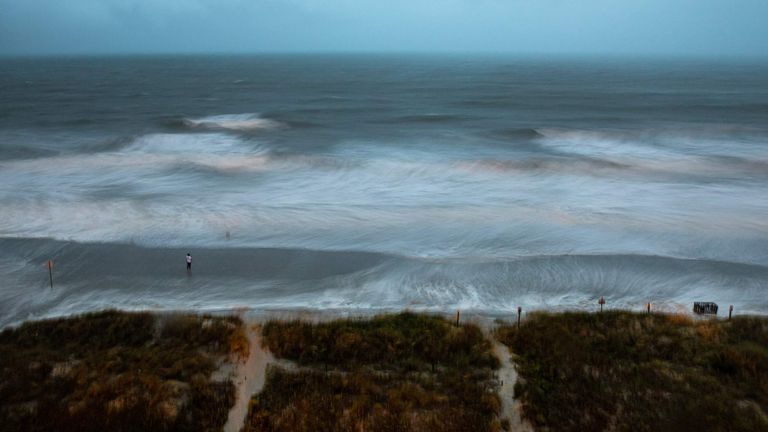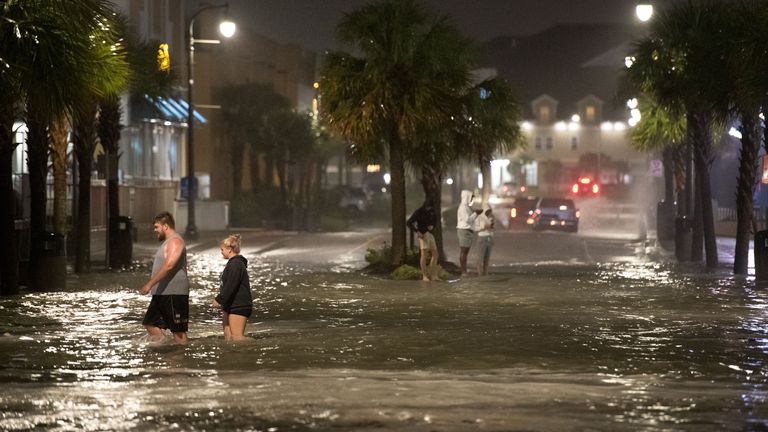Hundreds of thousands of people are without power after Hurricane Isaias made landfall in the US, bringing with it winds of 85mph and the threat of storm surges and flash floods.
By the time the eye of Isaias hit southern North Carolina it had strengthened into a category one hurricane from a tropical storm.
It is due to make its way up the US eastern coast towards Washington, Philadelphia and New York, the National Hurricane Centre (NHC) said.
“Power outages in North Carolina from Isaias have now surpassed 200,000 outages,” the Carolina Weather Group said.
Isaias killed two people in the Caribbean and struck the Bahamas, but remained at sea as it brushed past Florida over the weekend.
“Only gradual weakening is anticipated after Isaias makes landfall in the Carolinas and moves across the US mid-Atlantic,” the NHC said.
“Preparations to protect life and property should be rushed to completion.”
Ferry operators completed evacuations from Ocracoke Island in North Carolina’s Outer Banks, moving more than 3,500 people and 1,700 vehicles off the island over four days.
Coastal residents secured their homes, shops and restaurants closed early and most beachgoers abandoned the sand and surf with storm surges of up to 5ft (1.5m) and up to 8ins (20cm) of rain forecast in areas.
“All those rains could produce flash flooding across portions of the eastern Carolinas and mid-Atlantic, and even in the northeast US,” said Daniel Brown, senior hurricane specialist at the NHC.
The NHC also warned of possible tornadoes in North Carolina early on Tuesday, and from eastern Virginia to southern New England later.
A tropical storm warning extended all the way up to Maine, where flash flooding was possible in some areas on Wednesday.
North Carolina Governor Roy Cooper warned of severe inland flooding as rescue teams, high-water vehicles and helicopters were put on standby in the state.
Storm shelters were preparing to accommodate evacuees with at least 115 square feet (10 square metres) per person to ensure COVID-19 social distancing.
:: Listen to Divided States on Apple podcasts, Google Podcasts, Spotify, and Spreaker
Mr Cooper said: “North Carolinians have had to dig deep in recent months to tap into our strength and resilience during the pandemic… but we have to dig a little deeper. Let’s keep each other safe from the wind and water, as well as from the virus.”
Authorities in Myrtle Beach, South Carolina, ordered swimmers out of the water to avoid rough surf and strong rip currents.
President Donald Trump on Monday described Isaias as “very serious” and urged communities to stay “vigilant”.


